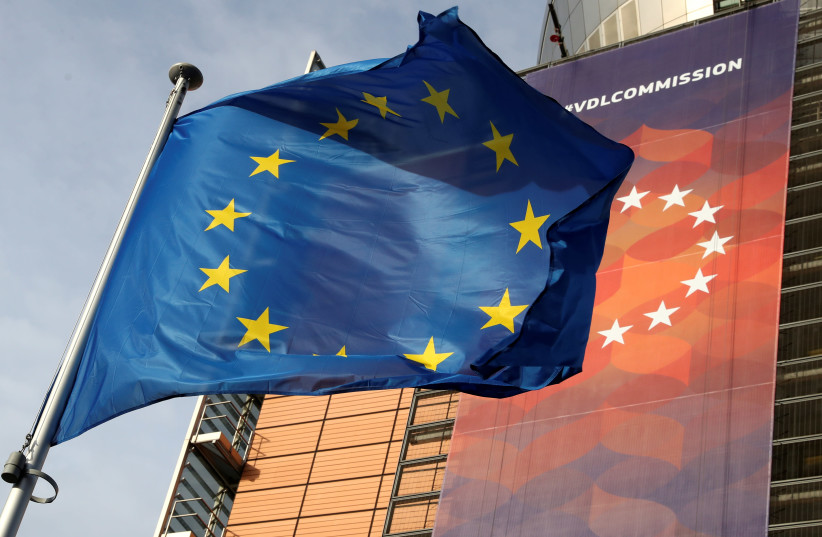When he was the UK prime minister, Boris Johnson was an ardent and visible supporter of Ukraine in its fight against Russian aggression. He was among the first Western leaders to visit Kyiv, and he came there twice more, including in the final weeks of his premiership, on August 24, Ukraine’s Independence Day.
He provided extensive military assistance to Ukraine, including training for Ukrainian soldiers in the UK. He is so popular in Ukraine that a street in Odesa was named after him and Ukrainians even put together “Johnson-UK” to get a Ukrainian-sounding name Borys Dzhonsonyuk.
Ukrainians also warmly welcomed the election of Liz Truss as the new UK prime minister; she promised to continue Johnson’s support of Ukraine and called Ukrainian President Volodymyr Zelensky as one of her first acts in office.
Why does Brexit matter in supporting Ukraine against Russia?
All this looks great from Kyiv, but the truth is that the Tories’s support for Ukraine has much to do with Brexit. In the run-up to the 2016 referendum on EU membership, the Leave campaign talked a great deal about World War II and the Battle of Britain, when the British people stood alone against Hitler’s military might. Putin’s unprovoked attack on Ukraine resembled Hitler’s invasion of Poland so much that Britain’s support for Ukraine felt like a throwback to 1939.
In addition, Johnson’s actions were a response to those who believed that by leaving the EU, Britain had lost much of its global importance. On the contrary, Johnson was at pains to demonstrate that London had the freedom to pursue its own foreign policy without regard to Brussels and even lead the West in supporting Ukraine.

In reality, the war in Ukraine, if anything, underscored the importance of the EU.
The Russia-Ukraine War shows why the EU is important
WHILE THE US has become the main supplier of arms to Ukraine, especially of effective modern weapons, which Ukraine is using to drive the Russians back, Brussels plays a key role in isolating Russia. It formulates and implements a unified sanctions policy even though some politicians in Europe openly call for an accommodation with Putin.
Some 70,000 people rallied in Prague with Russian flags in early September, and similar protests against sanctions are likely to increase as winter weather sets in, inflation accelerates, and the EU economy falters. Politicians advocating peace at any price may score electoral successes.
However, as long as the overall EU position remains unchanged, no accommodation by individual countries will be possible. Even Hungary’s Viktor Orban ended up supporting successive rounds of sanctions despite being an ardent Putin admirer.
Brussels is also providing indispensable economic and financial assistance to Ukraine, and will be instrumental in the future rebuilding of the country when the war finally comes to an end. Since the hundreds of thousands of Ukrainian refugees who fled the war will not be able to return home for some time even after the war ends, because so much infrastructure has been damaged and so many jobs have disappeared, concerted action by the EU will be needed to accommodate them on a long-term basis.
The crucial role played by united Europe should be obvious to Poland, the country that finds itself on the front lines of resistance to Russian expansion. Warsaw’s relations with Brussels have been strained by Polish government policies which go against the liberal democratic norms set by the EU. Perhaps Poland’s nationalist Law and Justice Party will now realize that by undermining European unity it causes great damage to Poland as well.
The same goes for the US, where most Republican politicians support Ukraine and have no love of Putin. However, the same Republicans also supported Donald Trump, who during his presidency attacked European integration, backed Brexit, and questioned the usefulness of NATO. MAGA Republicans remain isolationist, clinging to Trump’s version of the America First doctrine; had Trump been in the White House instead of Joe Biden, Ukraine’s fate might have been quite different.
Russia is reeling thanks to the bravery of Ukrainian soldiers and civilians and to unified Western response to its aggression. However, Putin is still far from being defeated and, beyond that, other major problems are facing the world. They include, for instance, expansionist China, radical Islam, global warming and rapid population growth – especially in the global South that is being devastated by climate change.
A successful response to these and other challenges can come only from joint action by rich industrial democracies and not by a community of nation states each pursuing its own interests as envisioned by nationalist right-wing radicals such as Trump and Trumpists in the US, and the likes of Matteo Salvini, Marine Le Pen and Liz Truss in Europe.
Born in the former USSR, the writer has lived in the US since 1975, having emigrated on an Israeli visa during the Let My People Go campaign for Soviet Jewry. He has worked as an economist for 35 years, including holding positions at Standard and Poor’s and The Economist Intelligence Unit. Over the past 10 years, he has published four murder mysteries set in Moscow in the 1960s.
